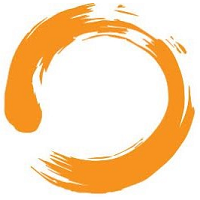What do you feel are your best traits and greatest strengths? What do you consider to be your worst faults and weaknesses? Stop for a second. Don’t even keep reading. Right this moment, give yourself a chance to write them down: ten of each. Yes, ten. Of each.
Just out of curiosity, was one list easier to come up with than the other? Note that for yourself. It’s good information to have.
Now narrow the list to the top five in each category that make you feel the best and worst about yourself – the ones you use to lift yourself up or beat yourself down, depending on your mood.
How does each of these help you in life? How do they hinder you? If you dig deep enough, you’ll find pros and cons for every trait you’ve listed. For example, I might list compassion as a “strength,” but what happens when I’m in a situation involving conflict and I want to be able to stick up for myself in a one-sided way? If there’s a part of me that enjoys the concept of compassion because it allows me to avoid conflict, then that’s a great clue to an area of life (conflict) that I could do with learning more about so I can become more comfortable in my own skin regardless of the situation around me.
And how about a “weakness” like not being smart enough? If you’re someone who walks around with this inner criticism, it’s easy to point to times when it’s stopped you, but how many times have you worked extra hard for something you wanted as a result of thinking you started at a deficit? What a great skill and habits to have developed – ones that too smart people didn’t necessarily have the opportunity to learn.
It’s easy to throw around ideals. Easy to look at others and compare yourself to them without knowing the flip side of their particular coin. Easy to beat yourself up for traits that with a little digging might actually yield hidden strengths – and easy to feel superior about traits that don’t always serve you in a given situation.
This month, make friends with each of the traits you listed. Instead of categorizing them as “good” or “bad,” give some thought to how and when they do and don’t serve you.



